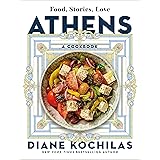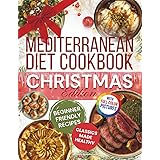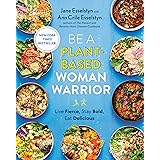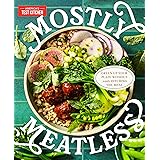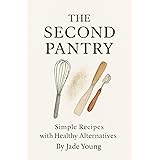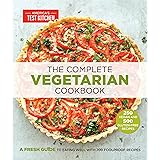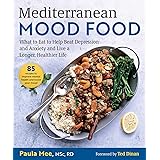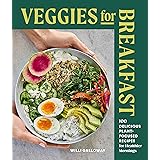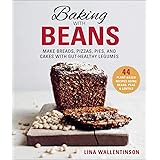The journey to maintain a strong heart and clear arteries, particularly for seniors, begins with understanding the profound impact of daily dietary choices. As illuminated in the insightful video above, there exist seven everyday foods that possess remarkable capabilities to naturally cleanse arteries, enhance circulation, and significantly diminish the risk of serious cardiovascular events such as heart attacks and strokes. These natural powerhouses are replete with compounds, antioxidants, vitamins, and minerals, which scientific research consistently demonstrates can effectively counteract plaque buildup, mitigate inflammation, and foster healthy blood flow throughout the body.
For individuals over 60, the silent progression of arterial clogging, known as atherosclerosis, represents a critical health concern. Imagine your body’s intricate network of arteries as the vital supply lines delivering essential nutrients and oxygen; over time, these conduits can accumulate fatty deposits, leading to stiffness and reduced efficiency. The good news, however, is that accessible, affordable, and delicious foods can serve as a formidable defense against this process. This comprehensive guide delves deeper into these protective foods, offering actionable insights for integrating them into a daily regimen.
Understanding Atherosclerosis: The Silent Threat to Artery Health for Seniors
Atherosclerosis is a condition where plaque, a sticky substance made of fat, cholesterol, calcium, and other substances found in the blood, builds up inside your arteries. This buildup can harden and narrow your arteries, restricting the flow of blood to your organs and other parts of your body. Such arterial stiffening is a major contributor to heart disease, stroke, and various circulation problems commonly observed in seniors. The danger is often compounded by the fact that this process frequently progresses without noticeable symptoms for many years, only to manifest tragically as a major health crisis.
Consequently, proactive measures are paramount for maintaining optimal cardiovascular health. It is not merely about managing symptoms but actively fortifying the arterial system against damage. The foods discussed in the accompanying video and elaborated upon here are not merely dietary suggestions; rather, they represent a scientifically-backed strategy for nurturing the arteries and ensuring robust circulation, thereby diminishing the likelihood of age-related cardiovascular complications.
The Magnificent Seven: Artery-Cleansing Foods Explained
Specific foods have been identified through extensive research as particularly beneficial for arterial health. Integrating these into your diet can provide a natural shield against the detrimental effects of plaque formation and inflammation. Each of these seven foods offers unique protective properties, contributing synergistically to overall cardiovascular wellness.
1. Garlic: The Ancient Artery Protector
Garlic, a staple in kitchens worldwide, has been revered for its medicinal properties for thousands of years. Its efficacy in protecting cardiovascular health is strongly supported by modern scientific inquiry. A clinical study published in the Nutrition Journal, for instance, revealed that aged garlic extract can significantly reduce the buildup of plaque within the arteries and concurrently enhance arterial elasticity. This remarkable effect is largely attributed to garlic’s ability to lower cholesterol levels, reduce blood pressure, and inhibit platelet aggregation, which is a process that can lead to dangerous blood clots.
For seniors, incorporating just one or two cloves of raw or lightly cooked garlic into daily meals can translate into improved blood flow, a decreased risk of stroke, and a stronger, more resilient heart. Imagine the protective benefits derived from such a simple, flavorful addition to your diet. Furthermore, specific compounds within garlic, particularly allicin, are activated when garlic is crushed, maximizing its therapeutic potential.
2. Leafy Green Vegetables: Natural Vessel Relaxants
Leafy green vegetables, encompassing varieties such as spinach, kale, and Swiss chard, are nutritional powerhouses for arterial health. These greens are notably rich in dietary nitrates, which the body efficiently converts into nitric oxide. Nitric oxide serves as a crucial signaling molecule that prompts blood vessels to relax, thereby widening the arteries and facilitating enhanced blood circulation.
Research published in the American Journal of Clinical Nutrition has substantiated that regular consumption of nitrate-rich vegetables is associated with significantly lower blood pressure and improved arterial health. Given that seniors frequently contend with age-related arterial stiffness, leafy greens can function as a natural relaxant, helping to restore flexibility to the blood vessels. Consequently, incorporating a daily serving of spinach salad, steamed kale, or a vibrant green smoothie can be a transformative step towards better cardiovascular well-being.
3. Fatty Fish: Omega-3 Powerhouses for Heart Health
Certain fatty fish, including salmon, mackerel, and sardines, are celebrated for their abundant content of omega-3 fatty acids. These essential fats are distinguished by their potent anti-inflammatory properties. Given that chronic inflammation is a key instigator of plaque formation within arterial walls, the anti-inflammatory action of omega-3s is incredibly valuable. As reported in the esteemed journal Circulation, omega-3 fatty acids contribute to reducing triglyceride levels, lowering blood pressure, preventing the formation of blood clots, and generally improving overall heart function.
For seniors, consuming fatty fish two to three times per week has been shown to reduce the risk of heart attack by an impressive margin, potentially as much as 30%. If dietary restrictions or preferences preclude fish consumption, high-quality omega-3 supplements derived from algae oil present an effective alternative. The consistent intake of these healthy fats supports the maintenance of flexible and clear arteries.
4. Berries: Antioxidant Guards Against Arterial Damage
Berries, such as blueberries, strawberries, and blackberries, are laden with powerful antioxidants known as anthocyanins. These compounds are instrumental in combating oxidative stress, a biological process that can damage artery walls and initiate the formation of plaque. A study featured in the journal Atherosclerosis provided compelling evidence that individuals who regularly consumed berries experienced improved blood vessel function and a reduction in arterial stiffness.
Seniors who integrate a modest bowl of berries into their daily breakfast or snacks not only benefit from enhanced circulation but also receive a natural boost for cognitive function and memory. Imagine starting your day with a burst of flavor and protective antioxidants, fortifying your arteries against daily wear and tear. These small, vibrant fruits offer substantial benefits for long-term arterial health.
5. Nuts: Healthy Fats and Fiber for Lowered Cholesterol
Nuts, particularly almonds and walnuts, constitute another vital component of an artery-cleansing diet. These nutritional powerhouses are rich in healthy monounsaturated and polyunsaturated fats, dietary fiber, and vitamin E, all of which collaboratively contribute to lowering levels of “bad” LDL cholesterol and significantly improving overall artery health. A noteworthy study published in the Journal of the American College of Cardiology indicated that individuals who consumed a handful of nuts at least five times per week experienced a substantially lower risk of coronary artery disease.
For seniors, this translates into not only cleaner arteries but also a stronger defense against various heart problems. A small handful of unsalted nuts daily is often sufficient to impart these protective benefits to your circulatory system. Furthermore, the fiber content aids in digestive health, creating a holistic benefit. Imagine swapping a less healthy snack for a handful of almonds, directly contributing to your arterial well-being.
6. Extra Virgin Olive Oil: The Mediterranean Elixir
Extra virgin olive oil, frequently hailed as “liquid gold” for its remarkable health benefits, is a cornerstone of the heart-healthy Mediterranean diet. This oil is exceptionally rich in monounsaturated fats and polyphenols, compounds known to reduce inflammation, lower LDL cholesterol, and enhance endothelial function – the health of the inner lining of your blood vessels. A landmark investigation, the Predimed trial, published in the New England Journal of Medicine, revealed that seniors adhering to a Mediterranean diet abundant in olive oil experienced up to a 30% reduction in the risk of heart attack and stroke.
The regular consumption of just one to two tablespoons of high-quality extra virgin olive oil per day, perhaps drizzled over salads or cooked vegetables, can contribute significantly to maintaining youthful and flexible arteries. Imagine preparing your meals with this golden oil, actively contributing to the longevity and vitality of your cardiovascular system. Its benefits extend beyond mere fat content, offering potent anti-inflammatory and antioxidant effects.
7. Oats: Soluble Fiber for Cholesterol Control
Simple oats, a common breakfast cereal, offer powerful benefits for arterial health primarily due to their high content of soluble fiber, specifically beta-glucan. This unique fiber effectively binds with cholesterol in the digestive tract, preventing its absorption into the bloodstream. Research published in the American Journal of Clinical Nutrition has consistently shown that daily consumption of oats can lead to lower LDL cholesterol levels and overall improvements in arterial health.
Seniors who regularly incorporate oatmeal into their diet not only maintain better cholesterol control but also achieve more stable blood sugar levels, a crucial factor for comprehensive vascular health. Imagine beginning your day with a warm, comforting bowl of oats, knowing that you are actively protecting your arteries and regulating your metabolism. This simple grain provides a foundational element for a heart-healthy diet, proving that powerful health benefits need not come from exotic or expensive sources.
Integrating Artery-Cleansing Foods into Your Daily Life
The true power of these foods lies in their consistent inclusion in your daily diet. Many seniors acknowledge the importance of healthy eating but struggle with the practicalities of implementation. The objective is to transform scientific recommendations into simple, enjoyable, and sustainable routines that fit seamlessly into your lifestyle.
Crafting a Heart-Healthy Breakfast
Breakfast presents an excellent opportunity to incorporate several artery-protective foods. Oats should be considered a primary choice. A warm bowl of oatmeal, enhanced with a handful of fresh berries, provides both cholesterol-lowering soluble fiber and artery-protecting antioxidants. For added variety and benefit, a sprinkle of chopped walnuts or almonds can elevate a simple meal into a heart-protecting powerhouse.
Some individuals may find plain oats unappealing; however, creativity can transform the experience. Consider cooking oats with low-fat or plant-based milk, adding a pinch of cinnamon for flavor, and sweetening naturally with fruits rather than refined sugar. This approach avoids hidden sugars that can contribute to arterial damage, while still delivering a delicious and satisfying start to the day.
Lunch and Dinner: Strategic Incorporations
For lunch, a shift towards leafy greens is highly beneficial. Rather than opting for heavy, fried dishes, a substantial salad featuring spinach or kale as its base is recommended. Dressings can be made simply with extra virgin olive oil and fresh lemon juice. Including grilled salmon or sardines will provide essential omega-3s, while a light sprinkle of nuts will offer healthy fats and fiber. This single meal can encompass at least four of the artery-protecting foods previously discussed.
If salads do not appeal, blending leafy greens into smoothies with berries and oats offers a refreshing and convenient way to combine multiple beneficial foods. Dinner should focus on balance and lightness, as heavy evening meals can sometimes impede circulation and raise blood pressure during sleep. An ideal dinner plate might feature steamed vegetables, grilled fatty fish, and a generous drizzle of olive oil. Garlic can be incorporated into soups, stir-fries, or roasted vegetables, providing both flavor and profound artery-cleansing properties. Remember to lightly crush garlic cloves and allow them to sit for a few minutes before cooking to activate beneficial compounds like allicin.
Recommended Daily and Weekly Portions
Scientific guidelines provide clear recommendations for optimal intake:
- **Garlic:** One to two cloves daily are considered effective.
- **Leafy Greens:** Aim for at least one to two cups per day.
- **Fatty Fish:** Two servings per week are recommended, with three servings offering even greater benefits.
- **Berries:** A small bowl daily, approximately half a cup, provides a sufficient dose of antioxidants.
- **Nuts:** A small handful, roughly 30 grams, five times a week, is considered ideal.
- **Extra Virgin Olive Oil:** One to two tablespoons per day are typically sufficient.
- **Oats:** Consume at least three times per week to harness their cholesterol-lowering effects.
Important Considerations for Seniors
While the benefits of these foods are substantial, certain considerations are important, especially for seniors. Natural remedies are powerful and should be approached with awareness and, in some cases, medical consultation.
Medication Interactions
Individuals currently taking blood thinners or cholesterol-lowering medications should always consult their doctor before making significant dietary alterations. For instance, foods like garlic and fish oil possess natural blood-thinning properties, which, while generally beneficial, could potentially interact with prescribed medications. A healthcare professional can provide personalized advice to ensure dietary changes complement existing medical treatments.
Addressing Common Concerns: Cost, Taste, and Reversibility
A common concern among seniors is the perceived expense of healthy foods. However, many artery-cleansing options, such as oats, garlic, and leafy greens, are quite affordable. Olive oil, nuts, and berries can often be purchased in bulk or frozen to reduce costs. Canned fatty fish, packed in water or olive oil, offers a budget-friendly and convenient option. The focus should be on consistent, smart choices rather than luxury items.
Taste is another frequent worry, particularly for those accustomed to processed foods. The secret to enjoying healthy eating lies in preparation. Garlic and olive oil naturally enhance flavor, while berries provide sweetness. Herbs like parsley, turmeric, and black pepper can significantly improve both taste and health benefits. Over time, taste buds adapt, and natural flavors become more satisfying. It is often observed that simple, whole foods can offer a richness and depth of flavor that processed alternatives lack.
Regarding the reversibility of artery blockages, it is important to have realistic expectations. While these foods may not entirely dissolve large, advanced plaques, scientific research strongly indicates their capacity to slow progression, stabilize existing plaques, and even subtly reduce buildup over time. This crucial stabilization means a reduced likelihood of plaque rupture, which is the primary cause of heart attacks and strokes. Thus, the emphasis is on prevention and halting further damage.
Improvements in blood pressure and circulation can often be observed within a few weeks of consistent dietary changes. Cholesterol levels commonly show improvement within three months, and arterial flexibility can begin to restore itself within six months. The earlier one begins, the more pronounced and lasting the benefits will be, underscoring that prevention is indeed the most potent medicine.
Harmful Foods to Avoid for Arterial Health
For the full benefits of artery-cleansing foods to manifest, it is equally crucial to minimize or eliminate foods that actively damage arteries. Imagine attempting to clean a pipe while simultaneously introducing sludge; the effort would be futile. Therefore, a balanced approach involves both adding beneficial foods and removing harmful ones.
Seniors should significantly cut back on processed meats such as sausages and bacon, trans fats frequently found in fried fast foods, sugary drinks, and refined carbohydrates like white bread and pastries. These items are known to trigger arterial inflammation, elevate cholesterol levels, and contribute to arterial stiffness. By consciously reducing the intake of these detrimental foods, the healing potential of the seven artery-cleansing foods can be greatly amplified.
Complementary Lifestyle Habits for Enhanced Artery Health
While diet is foundational, its benefits are profoundly multiplied when combined with supportive lifestyle habits. For seniors, addressing circulation problems often involves increasing physical activity, staying adequately hydrated, and effectively managing stress. These factors work in synergy with nutritional choices to create a robust defense for cardiovascular health.
Movement and Exercise
Even a modest daily walk of 20 to 30 minutes can dramatically improve blood flow. Physical activity naturally increases nitric oxide production, similar to the effect of leafy greens, which helps arteries relax and allows blood to move more freely. Gentle stretching or light exercises like yoga or Tai Chi further enhance flexibility and circulation without placing undue strain on the heart. These activities contribute to the overall elasticity and health of the vascular system.
Hydration and Stress Management
Proper hydration is frequently overlooked but critically important. Insufficient water intake can lead to thicker blood, requiring the heart to work harder to pump it throughout the body. Aiming for at least six to eight glasses of water daily, perhaps enhanced with a slice of lemon or a few berries for added antioxidants and flavor, supports optimal blood viscosity. Chronic stress is a silent adversary of arterial health, raising blood pressure and releasing hormones that can damage artery walls. Seniors can greatly benefit from stress-reducing practices such as deep breathing exercises, meditation, or simply spending tranquil time in nature. Hobbies like gardening, reading, or listening to calming music also effectively reduce stress and promote healthy circulation.
Sleep, Smoking, Alcohol, and Weight Management
Quality sleep is paramount for arterial repair and restoration; poor sleep is linked to increased inflammation and arterial stiffening. Strive for seven to eight hours of restful sleep each night, maintaining a consistent sleep schedule. Avoiding smoking is perhaps the single most impactful step for protecting arteries, as it is one of the fastest ways to induce arterial damage. While excessive alcohol raises blood pressure, small amounts of red wine, due to its resveratrol content, have been studied for potential heart health benefits, though moderation is key. Body weight also plays a significant role; even a small amount of excess belly fat can release harmful chemicals that inflame arteries. The encouraging news is that by adhering to the recommended diet and staying active, weight naturally tends to come under control, allowing arteries to begin their healing process.
Regular Health Checkups
Finally, continuous monitoring of blood pressure, cholesterol, and blood sugar through regular health checkups is essential. While natural foods and healthy habits are potent, tracking these vital metrics allows individuals and their healthcare providers to assess progress and make informed adjustments. Combining scientific understanding with natural wisdom represents the most intelligent and effective approach to maintaining cardiovascular health.
Imagine a daily rhythm where healthy choices seamlessly intertwine with life’s pleasures: a breakfast of oatmeal and berries, a refreshing morning walk, a spinach and olive oil salad for lunch, moments of peaceful relaxation, and a dinner of grilled salmon with garlic-infused vegetables, all culminating in restful sleep. This routine, far from being burdensome, actively maintains clear arteries, strengthens circulation, and substantially lowers the risk of heart disease. Seniors who embrace such a lifestyle frequently report heightened energy levels, reduced fatigue, and greater independence in their daily lives. The empowering truth is that each dietary choice and every healthy habit practiced contributes directly to protecting your heart and arteries, demonstrating that science-backed natural foods and simple lifestyle choices can indeed delay arterial aging and significantly reduce the likelihood of stroke or heart attack.


